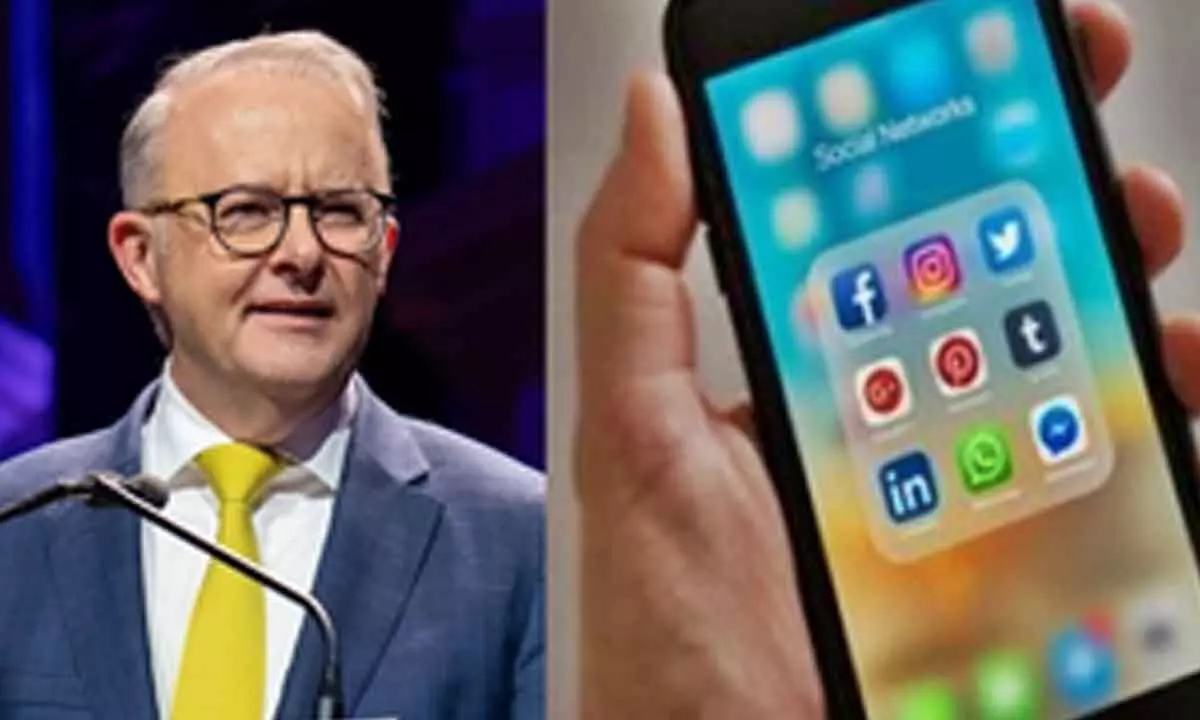Social media doing harm to youngsters, calling time on it: Australian PM Albanese
Share :

Australia's National Cabinet on Friday agreed to the government's proposed social media legislation - the first of its kind in the world - that sets a minimum age of 16 to access social media in the country.
Canberra: Australia's National Cabinet on Friday agreed to the government's proposed social media legislation - the first of its kind in the world - that sets a minimum age of 16 to access social media in the country.
"Social media is doing social harm to our young Australians and I am calling time on it. The safety and mental health of our young people has to be a priority and my government will do all that we can to protect our young Australians, but also to provide support for parents and teachers who are dealing with these issues. I want Australian parents to know that we have your back," Australian Prime Minister Anthony Albanese told reporters after the virtual cabinet meeting.
The move builds on Albanese government's work at its 1 May and 6 September 2024 meetings where an investment of $6.5 million was agreed to trial an age assurance pilot to protect children from harmful online content.
"This legislation follows extensive consultation with states and territories over a considerable period of time, with parents and teachers, with young people. The work that went into the social media summits that were called in Sydney and Adelaide in recent weeks. Academics, child development experts, industry and civil organisations, First Nations organisations have all been consulted over a period of time because this is a difficult issue and we want to get it right," said Albanese.
The Australian government believes that setting the minimum age at 16 will protect youngsters from the harms that come with social media, and will support mums, dads and carers to keep their kids safe besides also assisting in accelerating action to end gender-based violence in a generation.
"One of the discussions that we had with Premiers and Chief Ministers today was an analogy drawn between the banning of phones in classrooms and the feedback from that, controversial to some when it was introduced, is just overwhelmingly positive in the impact in making sure that students are concentrating on what's going on in their class and making sure as well that social interaction is improving. Kids are playing with each other at lunchtime instead of playing on their phones - that's a good thing," the Australian PM remarked.
The Albanese Government will introduce legislation in the next Parliamentary sitting fortnight with it coming into force no earlier than 12 months after Royal Assent. It puts the onus on social media platforms, not parents or young people, to take reasonable steps to ensure fundamental protections are in place.
"We want to say upfront that this won't solve all of the problems, but what this will do is send a social message about what society thinks is appropriate going forward and that will provide that assistance and support for this to be delivered. We will introduce legislation into the Parliament in the next sitting week, which is in just a fortnight's time, and we are hopeful of getting support for that legislation across the House of Representatives and the Senate," stated the Australian PM.
Interestingly, Albanese revealed that Tasmania "would have preferred the age of 14", but they didn't want to stand in the way of national uniformity and regarded getting a uniform national decision and process was most important.
"We were examining an age range of between 14 and 16. And I guess one of the starting points is where 13 is a notional entry point for a lot of these platforms, how much would 14 lift the dial? How much would 15 actually change the dial when it comes to those harms? There was a body of evidence presented from the UK about particular children's mental development around that time. So all this actually helped to inform the position that we arrived on and I'm pleased that National Cabinet sees the same," Australia's Communications Minister Michelle Rowland detailed.
